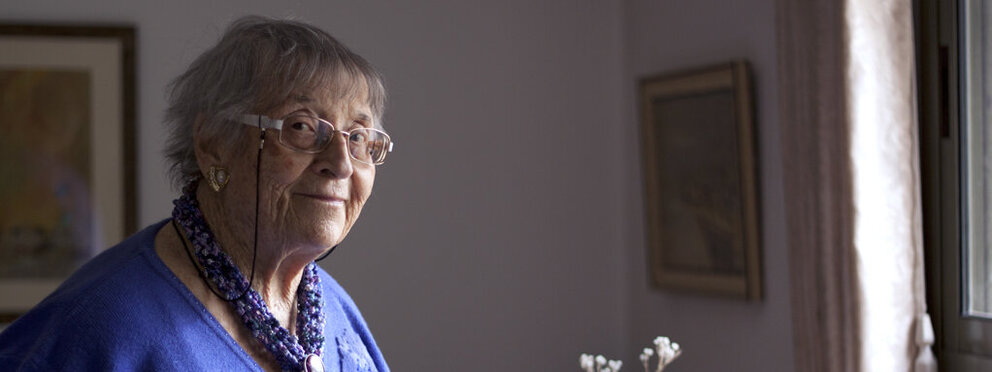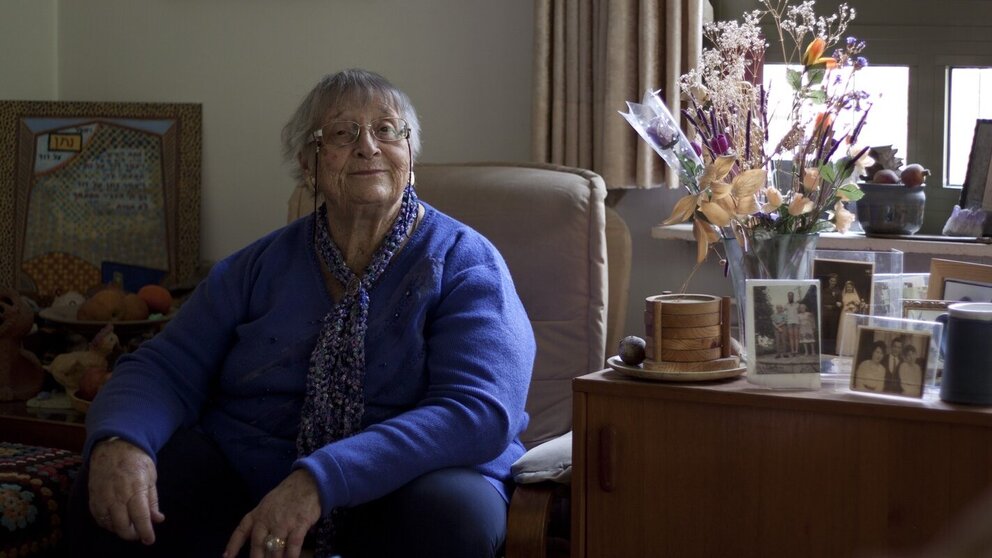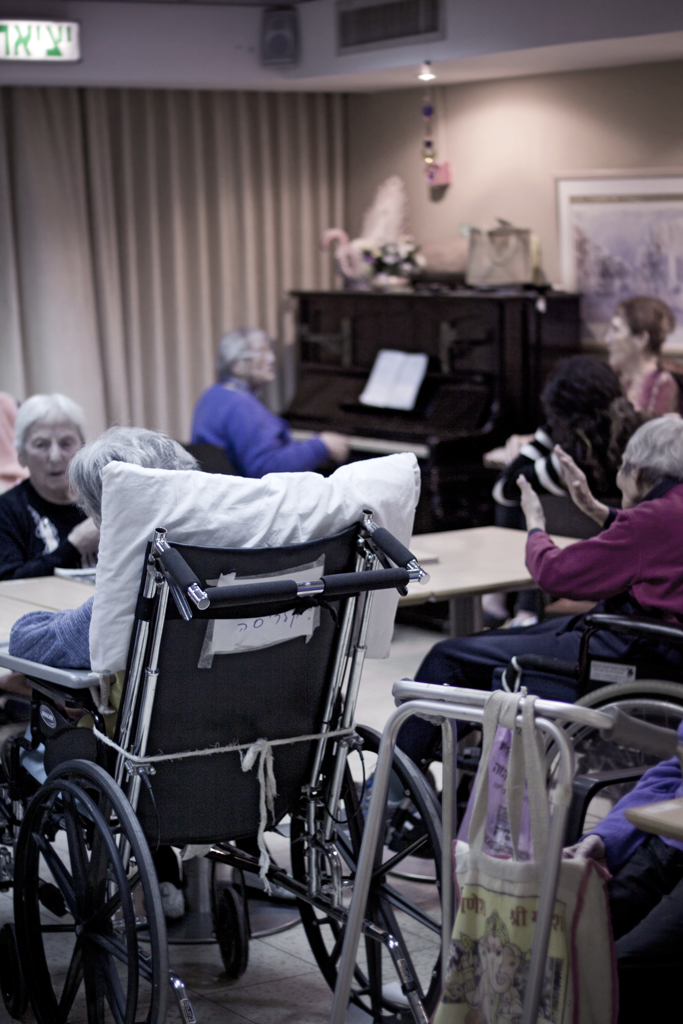
Elisheva Lehman
About Elisheva Lehman
Elisheva (called Ellis) Lehman was born in Scheveningen (Holland) in 1924. At the age of 17, she had a boyfriend called Berni, whom Ellis had to leave a few months later when the persecution of Jews began in Holland. They agreed to write diaries for each other. Berni was murdered in Auschwitz in January 1944. Elli's family remained in hiding in a total of 13 places until May 1945.
After liberation, she met her future husband Elmar, with whom she remained together until his death in 2008. Together they went to Israel in 1945, where Ellis worked as a music teacher. Coincidentally, on the day of their wedding, Ellis received a parcel containing Berni's last diary. It was not until 60 years later that she found the strength to read it. Together with her daughter, she wrote a book about their brief love. Until her death in 2021, Ellis lived in a retirement home, where she enjoyed making music.
Elisheva Lehman passed away in January 2021 and we miss her dearly.
"I've already seen a German soldier win the war in the Russian steppe on my bike."

A picture to live on
Then it was time and we tore ourselves away from the past. One floor below, residents who were physically or mentally very unwell waited eagerly for Ellis. Once a week, she played them something on the piano and shared some of her joie de vivre; melodies from the past. The music always accompanied Elisheva. It gave her strength and courage. We watched as Ellis sang loudly, radiating strength and joy, and all of a sudden we felt cheerful. We could even hum along to a few melodies: "Muss i denn, muss i denn zum Städele hinaus und Du mein Schatz bleibst hier..."
Ellis at the piano, making the people around her happy – this image remains in our minds and becomes the commentary image of our portrait.
When it was time to say goodbye, we parted as friends.
Even though many of the encounters in Israel only lasted a few hours, we took each and every one of them into our hearts like confidants. Because conversations of such intensity and openness do not remain on the surface.

Our encounter
Elisheva Lehman was greeted by everyone at Parentshome Moses. Both residents and employees liked the cheerful little lady. You can't blame them. In typical informal Dutch style, she called out: "Come and sit down, darling!" and we were already talking about being young, love and the sea.
Elisheva, also known as Ellis, has loved a lot in her life. She said she was lucky to have had two loves. Because many people only experience one real love at most. When Ellis talked about Elmar, her late husband, she beamed as if there had never been a bad thing in her life. Her whole room was also full of little reminders of the love in her life: Countless pictures of her family stood on tables and cupboards, small works of art by her grandchildren adorned the door and home-made and collected items reminded her of people and experiences. Her hustle and bustle, as she affectionately called her wild collection, always gave us cause for a little digression. It was fun to listen to her.
Nevertheless, we kept getting small glimpses of the bad times in their past that were not forgotten in their present. There was the fear when a car stopped in the street at night and the uncomprehending shaking of heads at the anti-Semitism that was still present. And there was Berni, her first great love. They wanted to get married after the war, they were sure of it. They had arranged to meet on her park bench, but he never came back. Although Ellis was able to fall in love again, she felt guilty towards Berni for the rest of her life.
It was not until more than 60 years after the war that she was able to come to terms with this loss together with her daughter. She showed us the diaries that Berni wrote for her during the war. We read the lines full of love and hope and knew about Berni's death in Auschwitz. It choked our throats – a feeling that no happy story can console.
